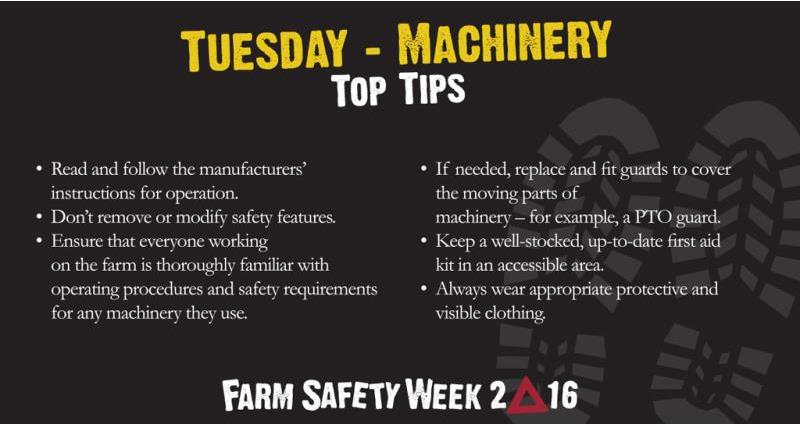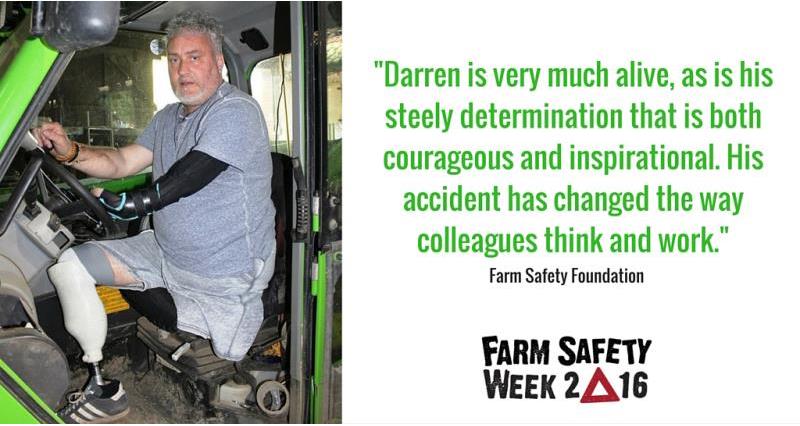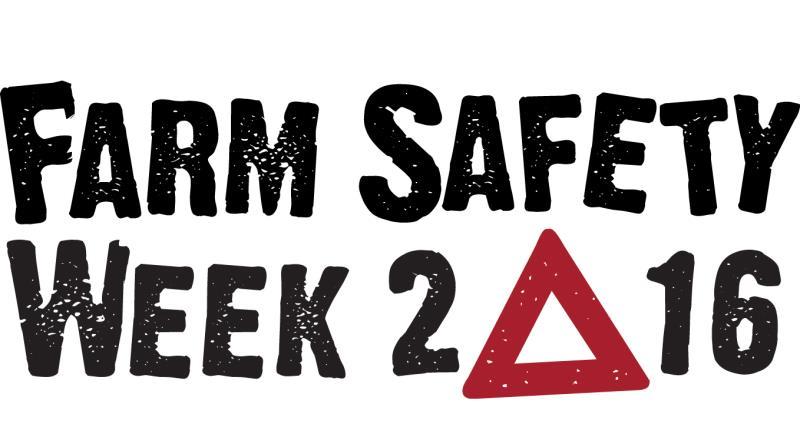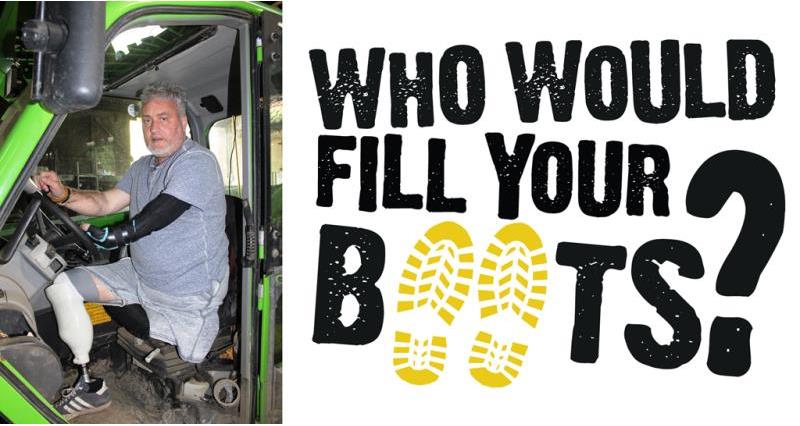Tuesday of Farm Safety Week focuses on machinery. Poorly used or faulty machinery is a major cause of death and injury on farms. Farmers come into contact with a host of machinery daily - combines, choppers and hay balers which bring their own attendant dangers.
Hands, hair and clothing can be caught by unguarded PTO shafts or other unguarded moving parts such as pulleys and belts. People can be injured by front-end loaders, falling from a moving tractor or being struck by its wheels.
Machinery accidents can be prevented by keeping the machine in good repair, fitting and ensuring all safety equipment (such as guards, safe access platforms and ROPS on tractors) are operating with the machine at all times and not taking risks when working with powerful machinery.
The Farm Safety Partnership’s Alan Plom said: “Over the course of this week, we will have five days, five themes and five countries with one very clear question – have you thought about ‘Who Would Fill Your Boots?’ if you were to have a farm accident.
“Everybody in farming knows somebody who has been injured or killed in an accident. Organisations like the Royal Agricultural Benevolent Institution offer invaluable support to people like Darren (see below) and are happy to support Farm Safety Week.
“This Farm Safety Week we are echoing Darren’s call not to rely on luck when working. Agricultural machinery is dangerous and can rip off a limb or kill in seconds. Make sure you use the SAFE STOP approach - ensure equipment is switched off when making routine checks or maintenance and always take your time to think about what you are doing and what might go wrong as making a few simple checks could actually save a life – maybe your own!”

‘A risk I had taken a million times before’ - Darren’s story
After losing limbs in a life changing accident with a potato harvester two and a half years ago, Darren Taylor a sheep farmer and contractor from Bolton Percy in North Yorkshire, is all too aware of how easily a risk that you have taken “a million times before” can change your life forever.
Darren was running the harvester early one morning, alone, in preparation for a day’s work. He tried to kick a stone out of the cleaning system at the back of the machine – something he admits to having done ‘a million times before’ – however this time his foot got caught in the rollers and pulled him in. As he tried to free himself, his left arm and his other leg also got sucked in. He was trapped in the machine for around 25 minutes until two colleagues arrived for work and raised the alarm.
 Two-and-a-half years later, Darren is ‘starting again’. He lost his right leg below the knee and his left leg right up to his hip. His left arm had to be removed from just below the elbow, but was sewn back on. He cannot bend it and has limited use of the hand. He is, however, very much alive, as is his steely determination that is both courageous and inspirational.
Two-and-a-half years later, Darren is ‘starting again’. He lost his right leg below the knee and his left leg right up to his hip. His left arm had to be removed from just below the elbow, but was sewn back on. He cannot bend it and has limited use of the hand. He is, however, very much alive, as is his steely determination that is both courageous and inspirational.
Darren was airlifted to Leeds General Infirmary and put in an induced coma for eight days. He underwent three major operations – each lasting 15-20 hours – in quick succession and was on dialysis because the accident had left so many toxins in his bloodstream. He spent three months in hospital and had to go to theatre just to have his dressings cleaned.
Darren still gets nightmares. And as he admitted, kicking a stone out of the back of the harvester was something he had done a million times before – and something he saw others do all the time.
“It was one of those flinty stones, they get in and they stick,” he recalls,
“What’s ironic is the first time I tried to get it out I actually switched the machine off, but I couldn’t hear where it was so I put the machine back on. The only thing I can think of that was different that day was that I had a new pair of boots on and they were a bit softer. I was unlucky – and more unlucky to be on my own. If someone had been with me I would probably only have lost a foot.”
Nowadays, Darren thinks he is more safety conscious, particularly for others. He also feels his accident has changed the way colleagues think and work. He added: “Farming is weather-related and there are big pressures just to get on with things. I want to make money like anyone else, but for the sake of 10 minutes switch the machines off. I’m 47 and have had a big part of my life but I wouldn’t wish this on my worst enemy.
“Farm machinery is generally much safer than it used to be but it’s also a lot stronger. It’s become so good that you do a lot more work on your own. When things do go wrong the machines are less forgiving. Thirty years ago I would probably have been able to stop the harvester myself, but not now.”

